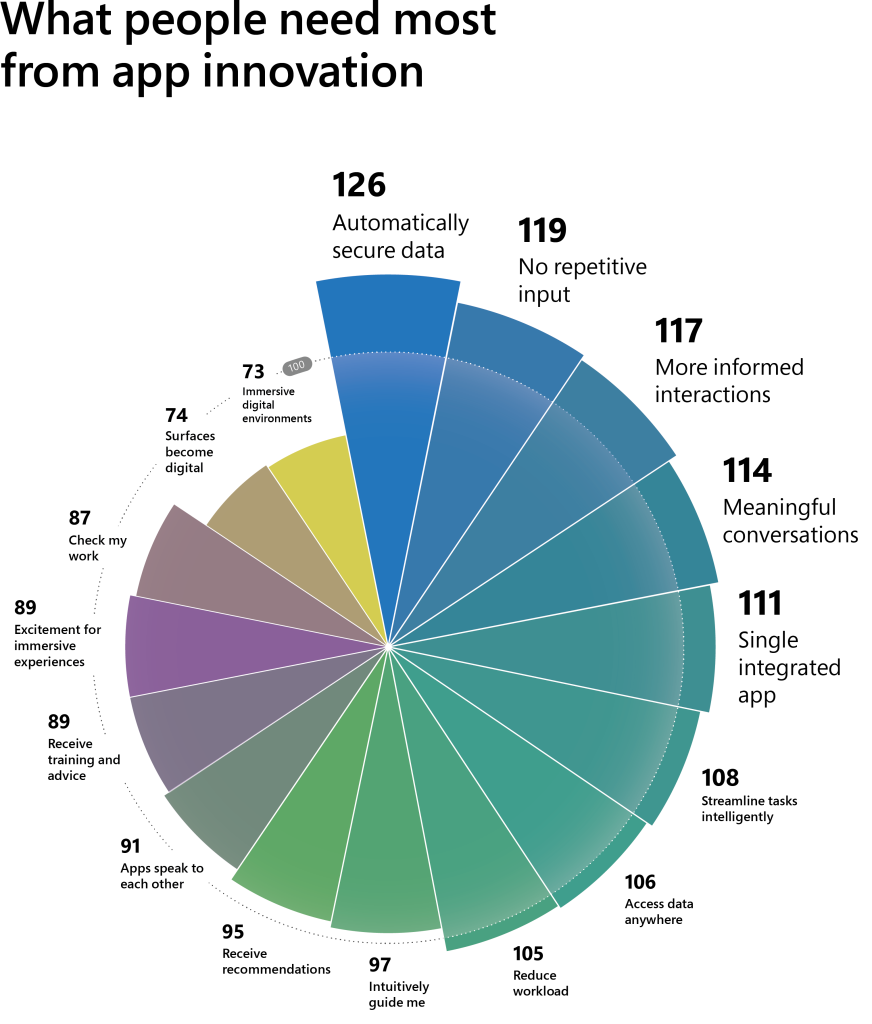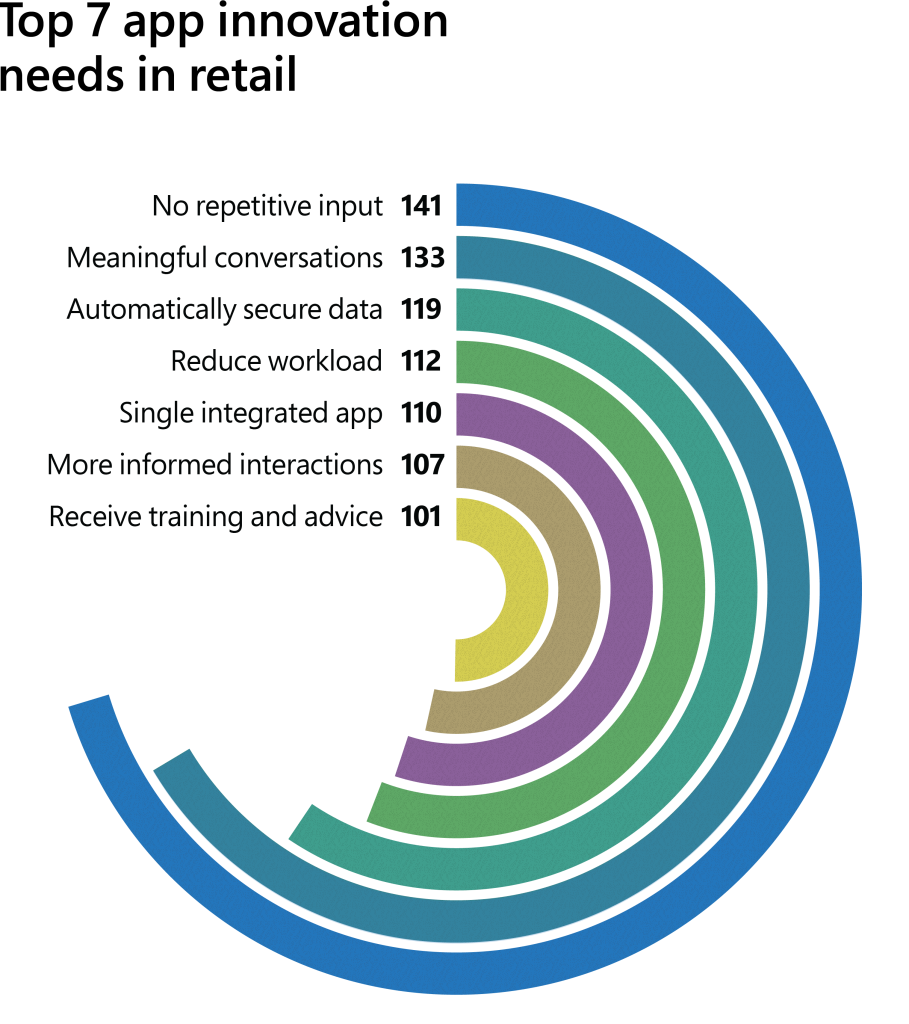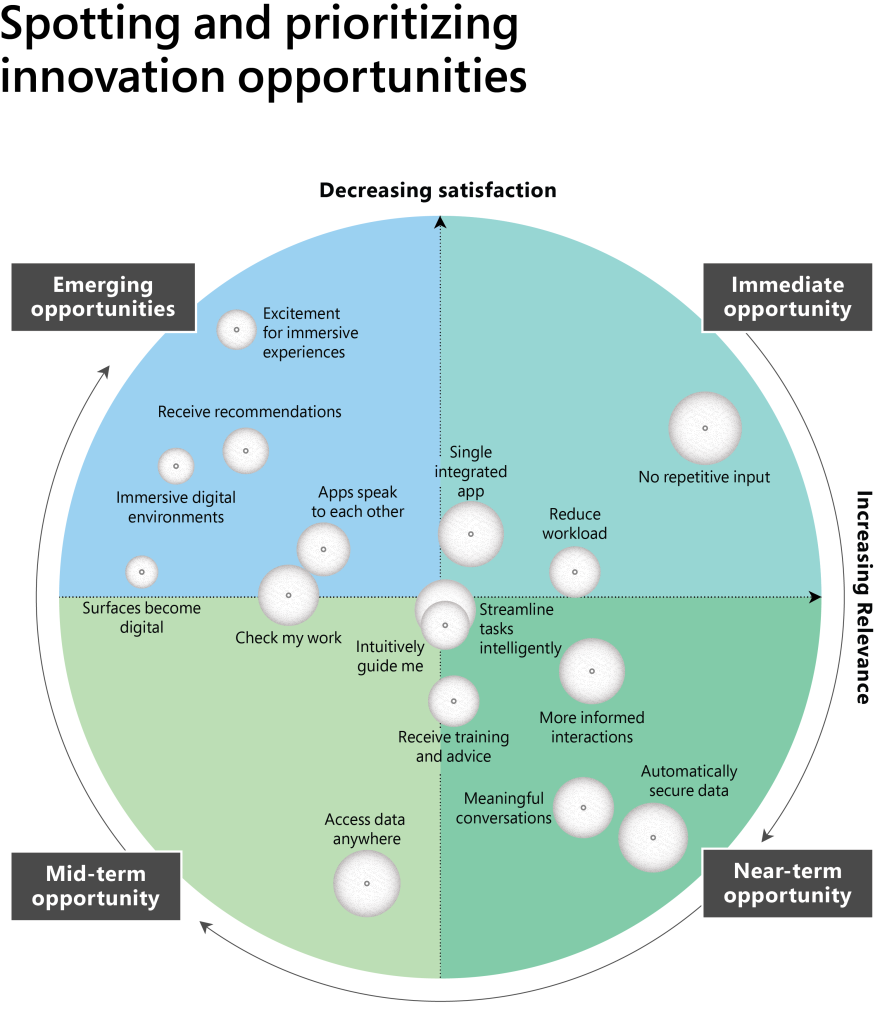In October, our Microsoft Ignite event drove incredible dialogue around how organizations can navigate a challenging market. Digital perseverance as encapsulated so well by Judson Althoff, our executive vice president, and chief commercial officer, resonates deeply with us across the Azure business and is sharpening how we think of strategic innovation in the face of headwinds.
There’s that word: Innovation. It continues to mean so many things to so many and, honestly, innovation becomes harder to distill amid constrained resources and near-term pressure. As we close 2022, reflecting on our own transformation, we remain inspired by a holistic cloud strategy; one which balances what’s coming around the corner with what lies ahead. Now more than ever, continuing to innovate in the right places is essential to maintaining a productivity edge internally, and strengthening differentiation externally. Your app estate is on the front lines of it all.
Last week, we shared insights from a range of cloud customers who plan to concentrate on migration and modernization plans for business resilience. Now I want to hone in on what kinds of modern experiences are in high demand to help organizations prioritize. Today, we’re releasing our first App Innovation Report, which identifies where digital investments can root innovation in human pain points. It all comes back to what problems need solving and looking at return on investment from another critical angle: the people who technology serves. As different as we are and as complex as our digital world has become, we psychologically seek a lot of the same things. We each value flow, integration, simplicity, efficiency, protection, freedom and fulfillment. By tapping into these common threads, businesses can deliver experiences people enjoy and keep coming back to.
Foundational security and integration concerns rise to the top
This fall we studied over 1,500 people working on the front lines of business challenges in healthcare, manufacturing and retail, and while we spoke to them as employees, we considered their perspectives as patients and shoppers too; the business-to-business-to-consumer (B2B2C) duality to our application expectations is pretty fascinating. Through interviews and surveys in five innovation hubs — the United States, Norway, Brazil, Japan and India — we applied social science to the state of the digital experience. It felt good to take a step back and ask our customers’ customers one simple question: What do you want and need from apps today? The answers surprised us — not because they were grandiose or futuristic but because they were foundational.

People feel stuck, frustrated and lost because of disjointed apps
People around the world in a vast range of roles expressed the most passion about disruption to their workflow. On the receiving side of apps of all kinds, there’s palpable frustration from having to manually patch together disparate tasks and tools. We learned people are struggling to secure data automatically, to streamline repetitive input, and to have well-informed interactions with others. While we heard desire for immersive technologies bubbling to the forefront, it wasn’t as prominent as pragmatic everyday realities and, from an Azure lens these areas signal opportunities to help advance AI automation, API management and app intelligence. Whether you’re migrating workloads, modernizing or building something new for flexibility and scale, the cloud can architecturally address so many of the trends we found.
Fear of compromising company data weighs on workers too
In the industries we researched, people share their companies’ concerns about data breaches on a personal, day-to-day level. In healthcare, they spoke about pressures surrounding HIPAA requirements when handling patient data. A sense of nervousness about security was also expressed in manufacturing, a highly targeted industry for ransomware, and retail workers worry about their accountability in handling customers’ financial information. Security is so incredibly important to us in Azure, so hearing from the usage and functionality side of this space emboldens us to partner on app development that can continue to advance confidence up and down organizations.
The cloud investments we make and the customization we code affect so many layers of a company and, in the applications space, innovation boils down to experiences people can count on and even enjoy using — it’s one of the most fulfilling aspects of the business we’re in. Well-architected workloads don’t only enable cost optimization, they provide a foundation of innovation where business leaders, technology and developer teams can adapt quickly to deliver secure, intelligent and intuitive apps people keep coming back to.
The need for more meaningful conversations stands out in retail
In light of the season, one industry-specific breakdown is especially timely. We see experience needs rank differently in retail compared to other cross-industry averages, with repetitive input surpassing automatic security, and desire for meaningful conversations breaking through in a way we don’t see elsewhere. Because shoppers today do so much research before visiting stores, retail workers want digital solutions that can help them provide information about product features, pricing, discounts and availability without breaking their connection to the customer. A sales engagement that feels jarring or closed off today could become warmer and interactive tomorrow.

Business leaders agree with worker concerns but need help prioritizing
Rounding out the research, we put our report in front of business leaders — those who choose Azure services and customers of other cloud providers. We also wanted to understand how chief technology, digital and operations officers are thinking about app design, and the themes voiced by workers were equally important to them. So, if workers have unmet needs like this and leadership is aligned, what’s next? Prioritization.
How we each define innovation is as unique as the cloud journeys we’re on but giving app experiences more shape helps us see strategic pockets in new ways and grounds cloud investments in the people who run your business, in the people you’re selling to. What kinds of inefficiencies are draining resources most immediately? Which growth territories will you target to compete? Organizations can’t tackle every app innovation project at once, but together, we can carve out data-driven spots that present the most promise.

One of the many things that drew me to Azure’s business is how many people it touches. When we look at Azure customers like the NBA, H&M or Starbucks, we see how very tangible outcomes are in the palm of our own hands as consumers and suddenly, what the cloud makes possible begins to click no matter who you’re talking to. When I watch real-time data on my Boston Celtics, when I’m able to shop for loved ones in a single click, and I can enjoy an iconic red cup without waiting in line, I am experiencing cloud-first app investments that pay off in spades. From the back end to the front end of app design, we’re reminded that business impact of everything digital is highly human.
On behalf of the Azure team, we hope the App Innovation Report inspires your work going into the new year. And no matter how or what you celebrate, I wish you and your loved ones a safe and happy season.
Source: Future of App Innovation study conducted by Ipsos between July and September 2022 among 1,500 workers in healthcare, manufacturing and retail in the U.S., Brazil, India, Japan and Norway.
The post App Innovation Report: Prioritizing human pain points to build high-impact experiences appeared first on The Official Microsoft Blog.
Source: The Official Microsoft Blog